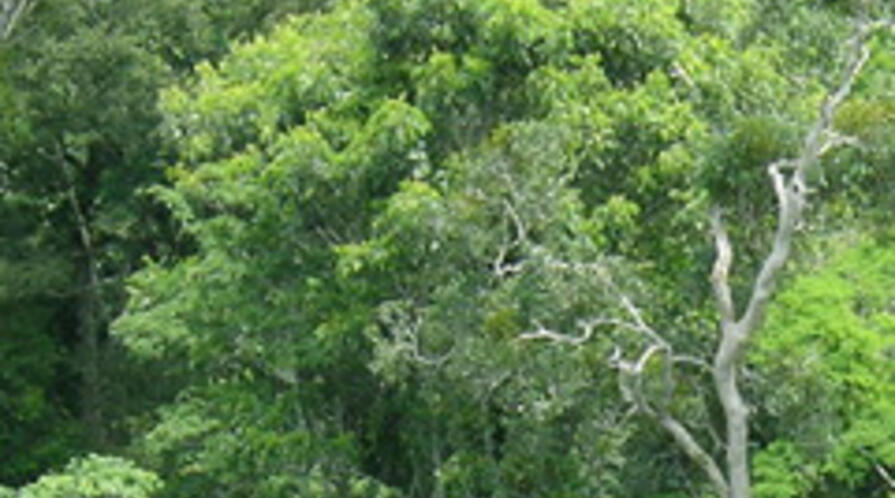Although China and the United States are the two largest emitters of greenhouse gases, China’s emissions on a per capita basis are significantly lower than those of the U.S.: in 2005, per capita emissions in China were 5.5 metric tons—much less than the U.S. (23.5 metric tons per capita), and also lower than the world average of 7.03 metric tons. China’s total GHG emissions were 7,234.3 million tons of CO2 equivalent (tCO2e) in 2005, 15.4 percent of which came from the agricultural sector. By comparison, total U.S. emissions were 6,931.4 million tCO2e, 6.4 percent of which were from agriculture. Within China’s agriculture sector, 54.5 percent of emissions come from nitrous oxide, and 45.5 percent come from methane, which is the opposite of the composition of global GHG emissions from agriculture.
Economic studies show that climate change will affect not only agricultural production, but also agricultural prices, trade and food self-sufficiency. The research presented here indicates that producer responses to these climate- induced shocks will lessen the impacts of climate change on agricultural production compared to the effects predicted by many natural scientists. This study projects the impacts of climate change on China’s agricultural sector under the A2 scenario developed by the Intergovernmental Panel on Climate Change (IPCC), which assumes a heterogeneous world with continuous population growth and regionally-oriented economic growth. Depending on the assumptions used related to CO2 fertilization, in 2030 the projected impacts of climate change on grain production range from -4 percent to +6 percent, and the effects on crop prices range from -12 percent to +18 percent. The change in relative prices in domestic and international markets will in turn impact trade flows of all commodities. The magnitude of the impact on grain trade in China will equal about 2 to 3 percent of domestic consumption. According to our analysis, trade can and should be used to help China mitigate the impacts of climate change; however, the overall impact on China’s grain self-sufficiency is moderate because the changes in trade account for only a small share of China’s total demand.
The effect of climate change on rural incomes in China is complicated. The analysis shows that the average impact of higher temperatures on crop net revenue is negative, but this can be partially offset by income gains resulting from an expected increase in precipitation. Moreover, the effects of climate change on farmers will vary depending on the production methods used. Rain-fed farmers will be more vulnerable to temperature increases than irrigated farmers, and the impact of climate change on crop net revenue varies by season and by region.
In recent years, China has made tangible progress on the implementation of adaptation strategies in the agricultural sector. Efforts have been made to increase public investment in climate change research, and special funding has been allocated to adaptation issues. An experiment with insurance policies and increased public investment in research are just two examples of climate adaptation measures. Beyond government initiatives, farmers have implemented their own adaptation strategies, such as changing cropping patterns, increasing investment in irrigation infrastructure, using water saving technologies and planting new crop varieties to increase resistance to climatic shocks.
China faces several challenges, however, as it seeks to reduce emissions and adapt to climate change. Fertilizers are a major component of nitrous oxide emissions, and recent studies indicate that overuse of fertilizer has become a significant contributor to water pollution. Application rates in China are well above world averages for many crops; fields are so saturated with fertilizer that nutrients are lost because crops cannot absorb any more. Changing fertilizer application practices will be no easy task. Many farmers also work outside of agriculture to supplement their income and opt for current methods because they are less time intensive.
In addition, the expansion of irrigated cropland has contributed to the depletion of China’s water table and rivers, particularly in areas of northern China. Water scarcity is increasing and will constrain climate change
mitigation strategies for some farmers. One of the main policy/research issues—as well as challenges for farm households—will be to determine how to increase water use efficiency.
Despite the sizeable amount of greenhouse gases emitted by and the environmental impact of China’s agriculture sector, it also offers important and efficient mitigation opportunities. To combat low fertilizer use efficiency in China, the government in recent years has begun promoting technology aimed at calibrating fertilizer dosages according to the characteristics of soil. In addition, conservation tillage (CT) has been considered as a potential way to create carbon sinks. Over the last decade, China’s government has promoted the adoption of CT and established demonstration pilot projects in more than 10 provinces. Finally, extending intermittent irrigation and adopting new seed varieties for paddy fields are also strategies that have been supported and promoted as part of the effort to reduce GHG emissions.


